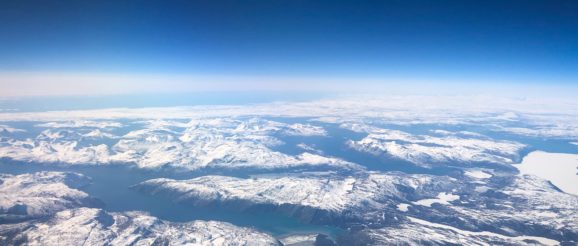IPCC: Future is Fast-paced, All-systems Shared Innovation

There is a new central organizing principle for trade, peace and security, industrial production, economic development, finance, food supply, energy, and advanced science.
In December 2015 in Paris, at the COP21 (the 21st annual negotiation of the Parties to the 1992 UN Framework Convention on Climate Change—which mandates that we avoid dangerous human-caused climate disruption), 195 nations agreed that the measurable warming of global average surface temperatures since pre-industrial times should be limited to “well under 2ºC”. An alternate (and more ambitious) target of 1.5ºC was also agreed, pending a scientific review by the Intergovernmental Panel on Climate Change.
Today in South Korea, the IPCC released that Special Report, and it makes clear that the science requires 1.5ºC be the new global agreed target for maximum allowable global warming.
The Stakes
The simplest expression of the summary findings, to put this new mandate in context, are:
- Catastrophic impacts are happening much faster than previously anticipated, and they are compounding.
- Science shows we can achieve the 1.5ºC goal for maximum global warming—if we organize, innovate, and mobilize quickly enough to secure our future.
The Opportunity
Everyone, in every sector of human activity, now has the clearest scientific guidance ever offered on where the most prosperous future lies.
- All industrial activities, including large-scale farming, stand to benefit from shifting as rapidly as possible to climate-smart standards.
- Those that harness this opportunity, in whatever field, will be the world’s economic winners in the coming decades.
Cities, transportation, heavy industry, energy production, farming, scientific research in virtually every area, will need to make serious progress toward this goal, and will benefit from the mobilization of resources to achieve it.
The Cost of Failing
We have just 10 years to act in a comprehensive way, to achieve a greater degree of technical innovation, for everyone everywhere, than has ever been achieved before, to keep global warming to 1.5ºC or under.
A critical scientific finding in the IPCC Special Report on Global Warming of 1.5ºC is that an ice-free Arctic Ocean in summer will still be a relative rarity, while at 2ºC it will be the norm. An ice-free Arctic Ocean would mean planet Earth will have lost one of its primary climate-regulating mechanisms.
- We are used to looking at Jupiter and Saturn and seeing clear horizontal bands of color. We are not used to thinking of the Earth this way, but the polar ice caps help to ensure climate bands are more precisely defined. When the Arctic is too warm, climate bands bleed, and we get the slippage of the Polar Vortex as far south as Texas and Florida.
- With no ice in the Arctic, warming will spiral, partly because of too warm air and water slipping north into the Arctic, partly because the dark water of the deep ocean absorbs more heat than the reflective white ice.
A 2ºC world is a world of irreversible change, deep water scarcity, frequent catastrophic storms, and widespread migration and armed conflict.
- We are already witnessing the rise of “fire ecology”—where firestorms big enough to make their own weather seize control of entire regions for entire seasons, and where much of a continent is forced to breathe the smoke from those fires. 2018 saw many images from space where smoke from wildfires was a defining visible weather feature.
- This will be worse at 1.5ºC, and science suggests it will be a totally unmanageable situation at 2ºC.
Economic losses and opportunity costs inherent in failing to keep warming below 1.5ºC will be devastating to human wellbeing and general prosperity in ways we simply cannot afford.
Innovating Faster, Together
Perhaps most clear in the report is the strong signal the science sends regarding the pace of technical innovation and change:
- We need to achieve net zero greenhouse gas emissions no later than 2050, ideally before that.
- We need to immediately deploy, at much faster pace, in a wider range of scenarios, all low-carbon energy technologies.
- There will be major opportunity for multi-purpose ecological energy solutions (BECCS, soil carbon enrichment, biopolymers).
The global human community will have to come together in the most comprehensive, complex collaboration in history, sharing technologies, deploying solutions, “scrubbing” economies large and small of outdated dirty industrial practices.
Accelerating Climate Intelligence
The result of all of this work will be a future more prosperous for more people than at any previous point in history.
It is worth mentioning that today, the Swedish Nobel Academy awarded the Nobel Prize in Economics for 2018 to two Americans:
Climate intelligence must now become part of all economic, security, industrial planning, and political analysis.
- We will not be our most successful, if we aren’t committed to the work of accelerating research, ecological economics, climate-smart finance, and innovation in service of everyday human experience.
In December, in Poland, 195 nations will work to agree the higher ambition campaign to achieve this new global climate security standard. New, more efficient, high-value ways of working in business, finance, technology, and data will be making sure the 1.5ºC world is possible.
